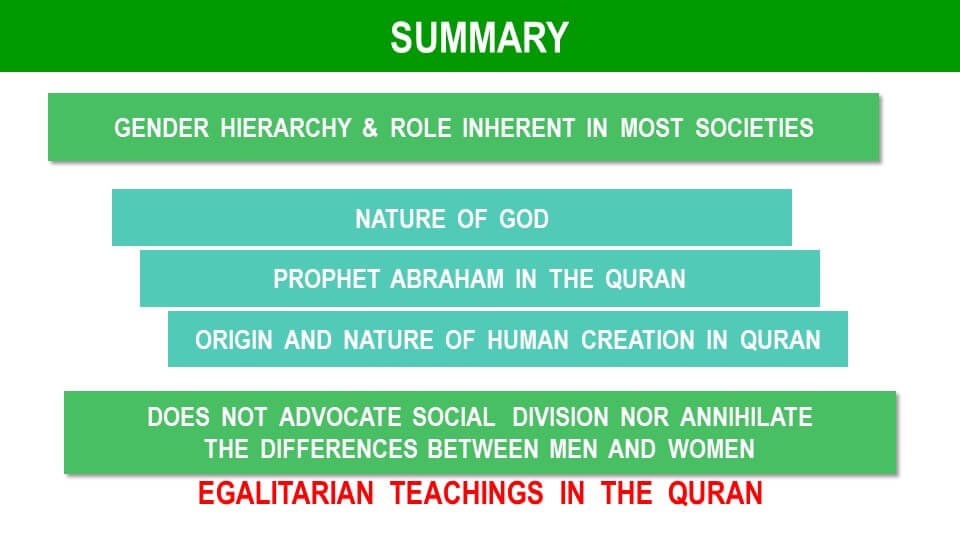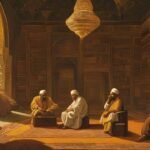Introduction
Introduction.
Asma says that her objective in writing this book was to recover the scriptural basis of gender equality in Islam.
Patriarchal structure and gender relationships are a function of multiple factors, most of it has nothing to do with religion. Societies generally promote hierarchal relationships & gender inequality which usually puts a stamp on female subservience.
In order to reclaim gender equality among Muslim societies one needs to examine what can be inferred from the Qur’an and what has been read into it.
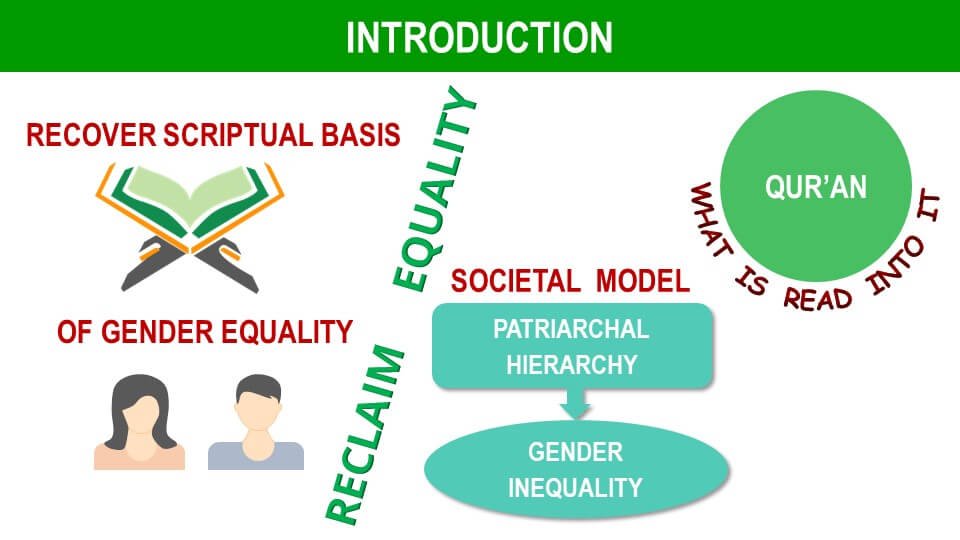
The Quran and Muslim Women
It was not God who wronged them, but they wronged their own souls. chapter 30, verse 9.
In order to examine whether the Quran is a patriarchal or misogynistic text, Asma Barlas begins by asking if it represents God as a father or a male figure or teaches that God has a special relationship with the males.
Does it teach that the rule of father or husband is divinely ordained? Does it advocate gender inequality on the basis of biological differences? Or does it treat man as the normative and woman as the other?
Before determining if the Quran promotes patriarchy, it is necessary to understand the intertextual and extratextual contexts in which it was read.
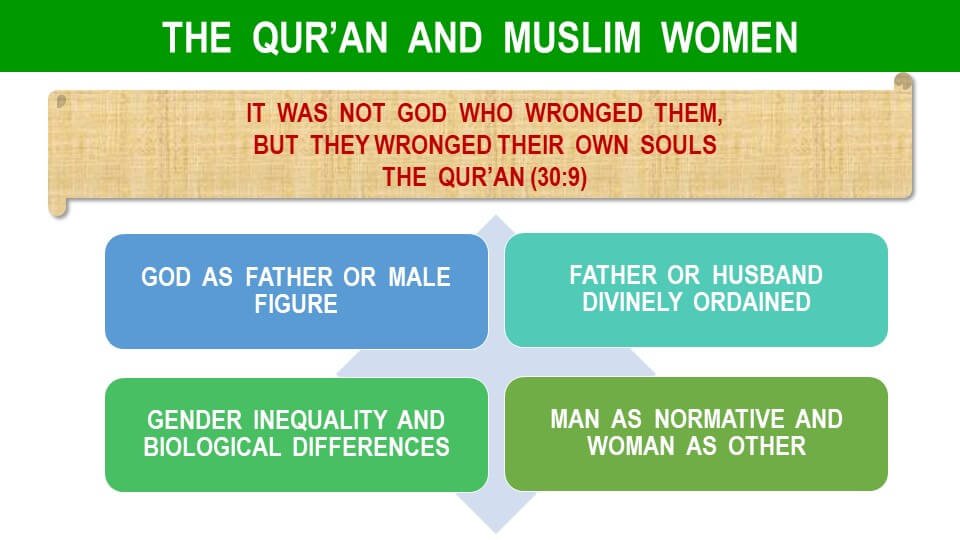
Intertextual and extratextual contexts.
They change the words from their right places and forget a good part of the message that was sent them. chapter 5, verse 14.
The Quran was revealed through divine inspiration to prophet Muhammed over a period of years. For Muslims, Quran is the source of Truth and has practical applications in this world.
In order to understand how Muslims produce religious meanings from the Quran one needs to identify the methodology used in reading the Quran and the secondary texts.
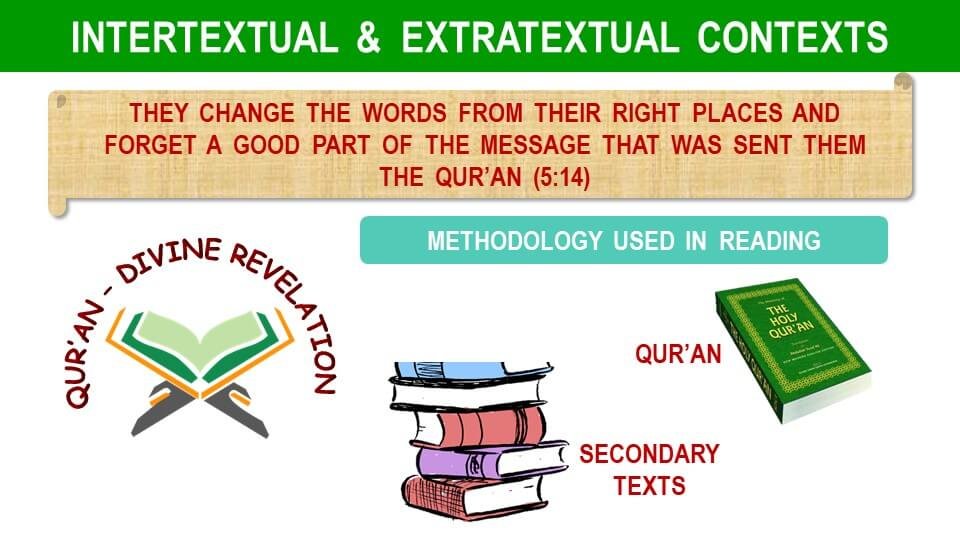
Secondary Texts
The secondary texts were influenced by social and cultural practices.
Many pre-Islamic arab, byzantine, jewish and persian elements were included in the secondary texts.
Secondary texts were highly regarded among religious scholars and state elites.
Patriarchal exegesis is often due to application of these secondary texts.

Quranic Exegesis
To understand Quranic exegesis, we need to know the intertextualities or interrelation between the secondary texts, such as, hadith, that is, narratives of the prophet; and Sunnah, that is, prophet’s biography. These texts are referred in developing tafsir, that is, exegesis or interpretation of the Quran. Shariah, that is, classical Muslim law is based on this understanding.
The reliance on the secondary texts often lead to confusing Quran with these texts, thereby, marginalizing Quran in the Muslim religious discourse.
The extratextual context relates to the social, state and legal practices. Hence, there is a need to understand these contexts in which Muslims have read the Quran. The critical thinking or ijtihad on the texts has been closed since the tenth century.
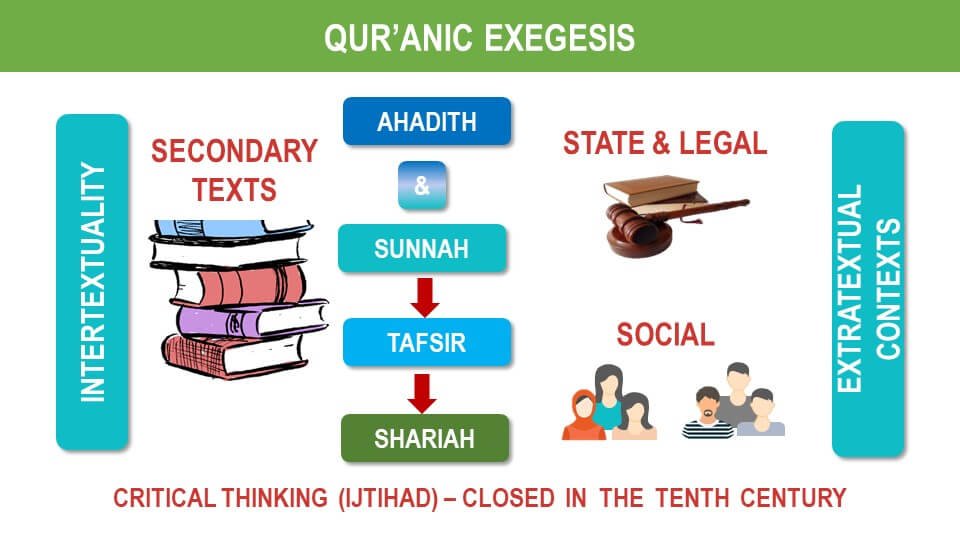
The Quran challenges Patriarchy
The teachings of the Quran are radically egalitarian and even antipatriarchal.
It does not inherently or symbolically, that is, biologically or culturally privilege males, or father’s rule.
This is substantiated by examining the nature of God and Quranic narratives of the prophets. Asma examines narrative on prophet Abraham described in the Quran.
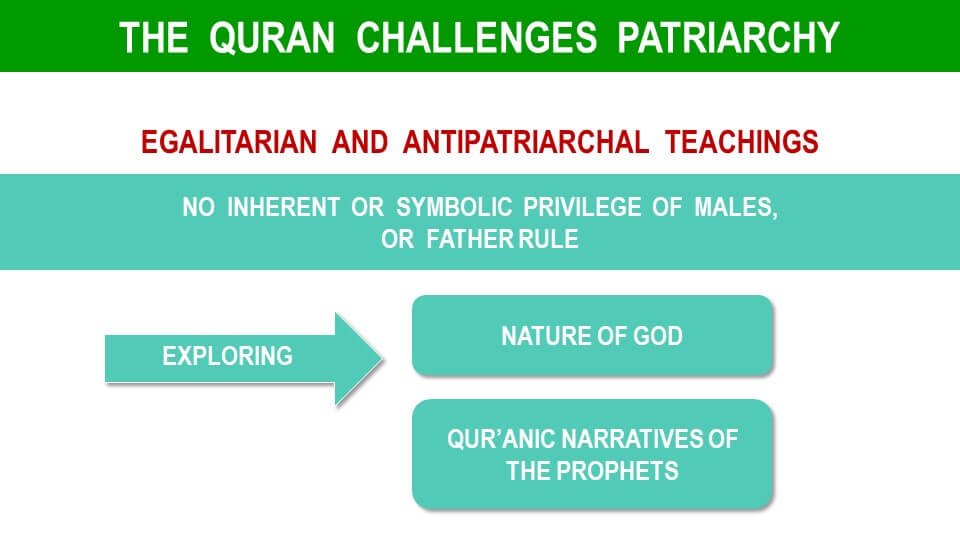
Nature of God
Three aspects of the nature of God are examined; Divine Unity or Tawheed, Justness, and Incomparability.
Divine unity or tawheed symbolizes that God is indivisible and hence, God is the absolute sovereign ruler.
The theory of male rule as an extension of God’s rule through male members is in direct conflict with the doctrine of divine unity. Hence, men are not intermediary between women and God.
God’s justice is unrelenting. God never does any Zulm or injustice, hence, God cannot teach injustice against anyone.
Reject an exegesis that reads oppression and inequality.
God is Incomparable, hence, unrepresentable. God’s relationship to humans is ontological or metaphysical. That is God cannot have anthropomorphic or human form.

Prophet Abraham in the Quran
Abraham arrives at the divine truth through reason and spiritual submission.
He becomes aware of his father’s shirk, that is, taking an intermediary to reach God.
He invites his father to follow one God and his father rejects it.
There is a conflict between his belief in one God and obedience to his father.
Abraham rejects his father’s Gods and authority, and follows his belief.
Abraham prays to God on his father’s behalf.
And he is told that God’s mercy is not for those who promote falsehood after realizing the truth.
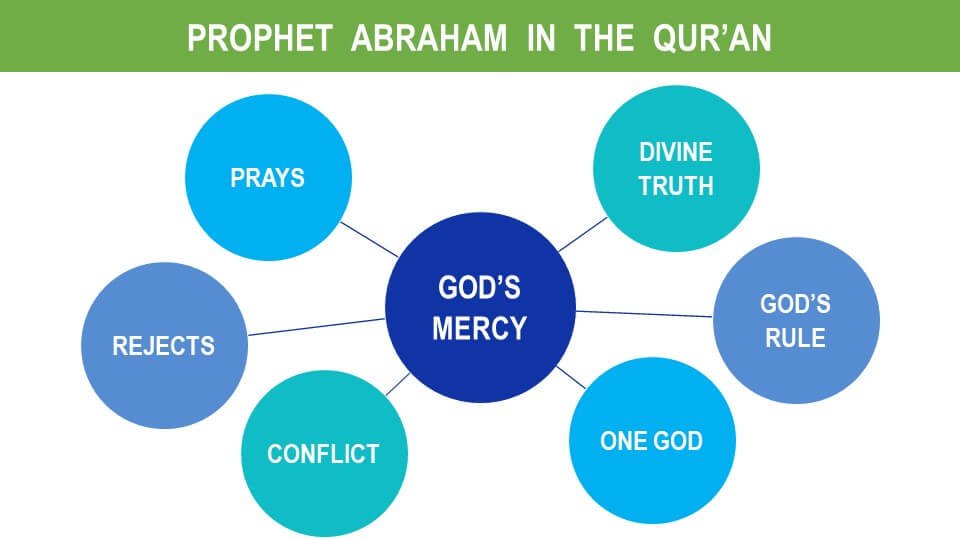
The Quran, Gender and Equality
Take not for protectors your fathers and your brothers if they love infidelity above faith. If any of you do so, they do wrong. Chapter 9, verse 23.
The Quran recognizes in patriarchy men are locus of authority.
The Quran is explicit about faith taking priority over relationship with male members of the family.
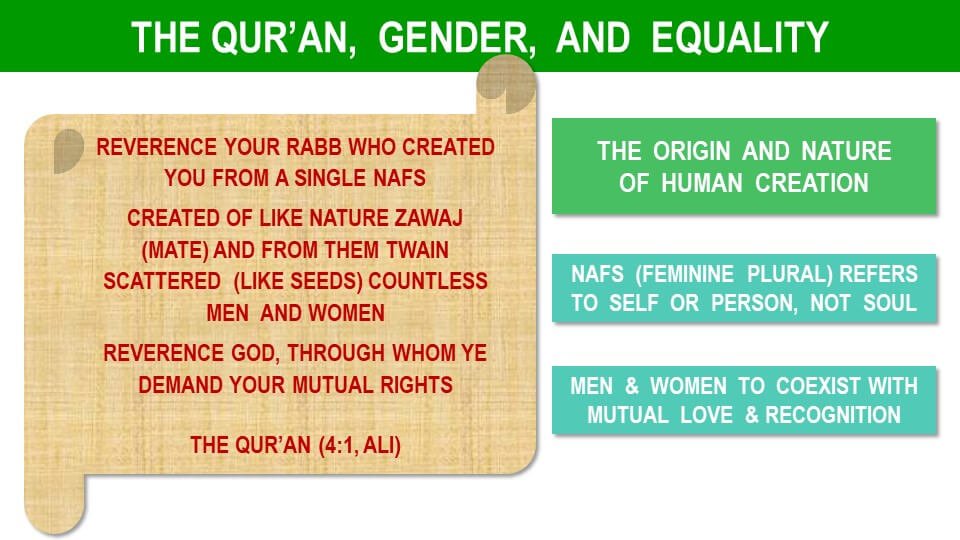
Understanding the Verse
It is inferred from the verse that woman was not created from man or woman was created after man.
The claims foundational to theory of male superiority, hence, sexual hierarchy and inequality are invalid.
God did not create biological man first, hence, no reason to assume God gave knowledge only to the man or appointed only men as vice-regent on earth.
The Quran in chapter 9, verse 71, affirms that women and men have same ability to reason and appoints one another’s protectors.

The Family and Marriage
Some Muslims conceptualize men and women as binary opposites and unequal based on certain verses where men and women are treated differently with respect to some issues.
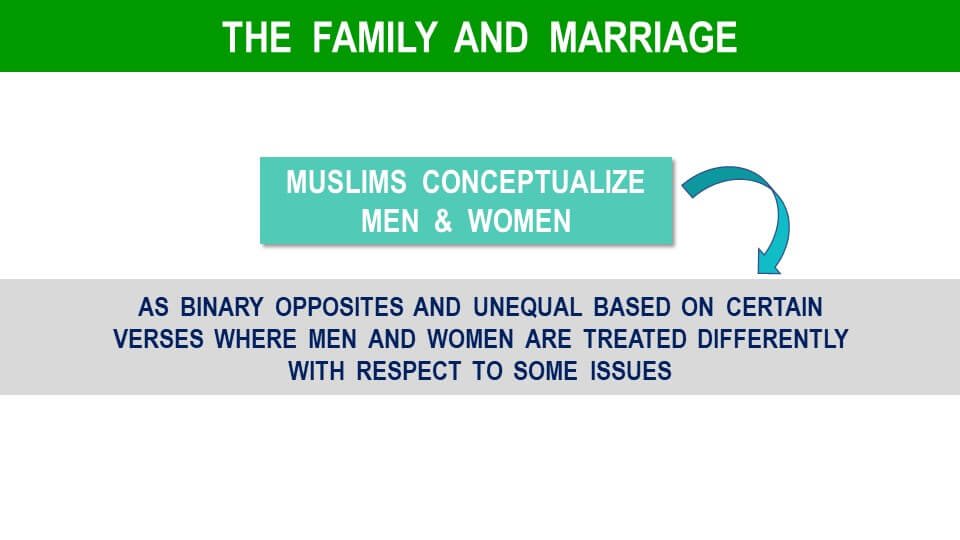
Widely Misread
The first widely misread verse by Muslims to quote male privilege is from chapter 4, verse 34.
Men are the protectors and maintainers of women, because God has given the one more strength than the other.
And because they support them from their means.
Therefore the righteous women are devoutly obedient, and guard in husband’s absence what God would have them guard.
As to those women on whose part ye fear disloyalty and ill-conduct, admonish them first, next refuse to share their beds, and last beat them lightly.
But if they return to obedience seek not against them means of annoyance for God is most high great.
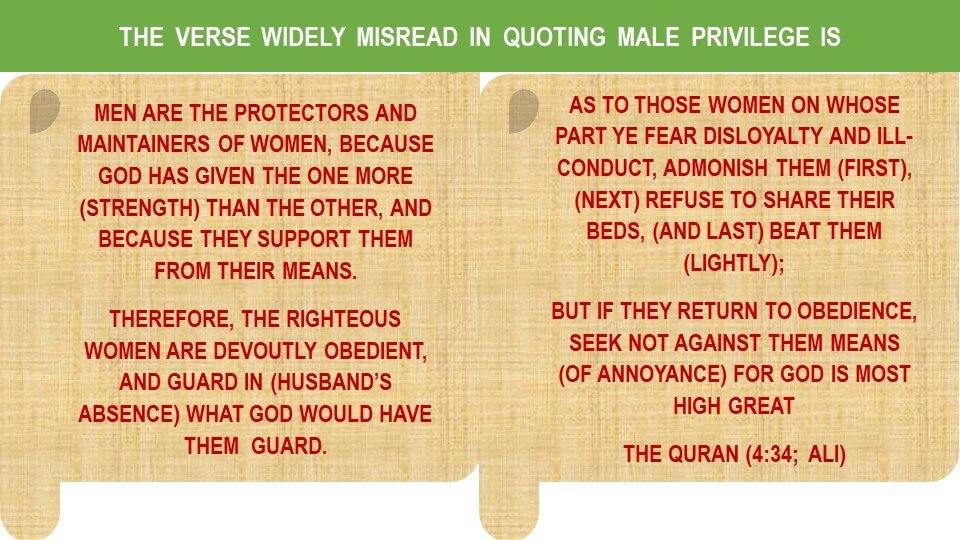
Translation
The verse as translated by Ali has two separate and inter related themes.
First is men’s role as protectors and maintainers of women.
Second is husband’s right to beat a disobedient wife.
Such an interpretation creates sexual differentiation and inequality.
Ali’s translation make it clear that men are protectors and maintainers, not guardians or rulers.
However, by using the word strength which is not in the Quran, Ali transforms the social responsibility of men mentioned in the verse to imply that men have been given more resources than women.

Several Interpretations
The verse is interpreted in several other ways.
As there could not be an equal distribution of God’s bounties, that is, financial resources.
Clearly, all men don’t have the same financial resources.
And certainly, not all men have more financial resources than all women.
In the first part of the verse, the word qanitat not only means obedience, it could mean water container. A metaphor for womb. This highlights a woman’s role as a child bearer.
In the second part of the verse, the word daraba has several meanings, that is, to strike, to set an example.
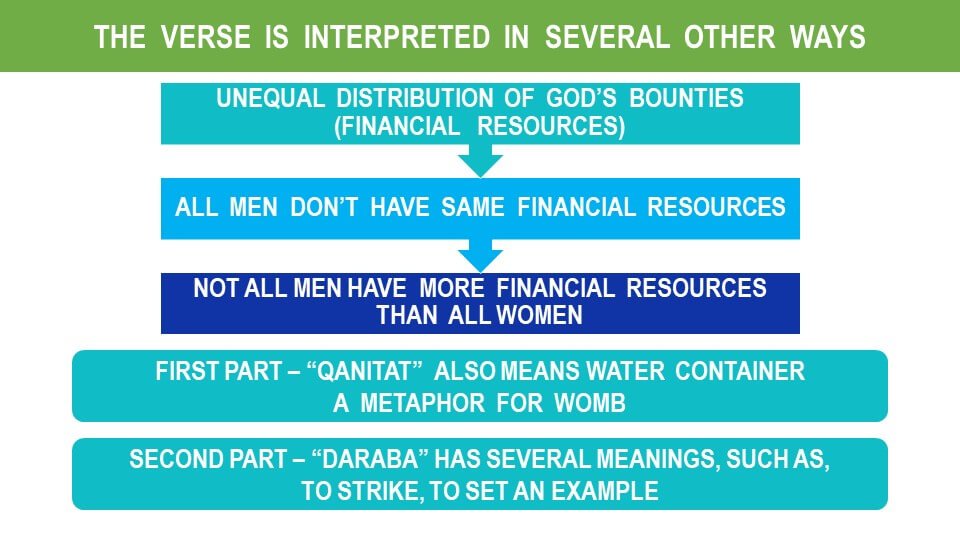
The Second Widely Misread Verse
The second verse that is widely misread is from chapter 2, verse 228.
Divorced women shall wait concerning themselves for three monthly periods; nor is it lawful for them to hide what God has created in their wombs if they have faith in God and the last day.
And their husbands have the better right to take them back in that period if they wish for reconciliation.
And women shall have rights similar to the rights against them according to what is equitable.
But men have a degree of advantage over them and God is exalted in power.

Interpretation of the Verse
Some exegetes interpret the word degree to imply male privilege over women.
However, degree does not refer to ontological status of men over women.
Men have the advantage of remarrying without waiting for three months. However, it encourages men to show more kindness towards women by taking them back if both of them wish to reconcile with equitable rights.
Also in chapter 4, verse 34, husbands are asked to take the women back if they want to return back.
Some exegetes who establish that husband as a ruler over his wife ignores that the Quran appoints both men and women as each other’s protectors as stated in chapter 9, verse 71
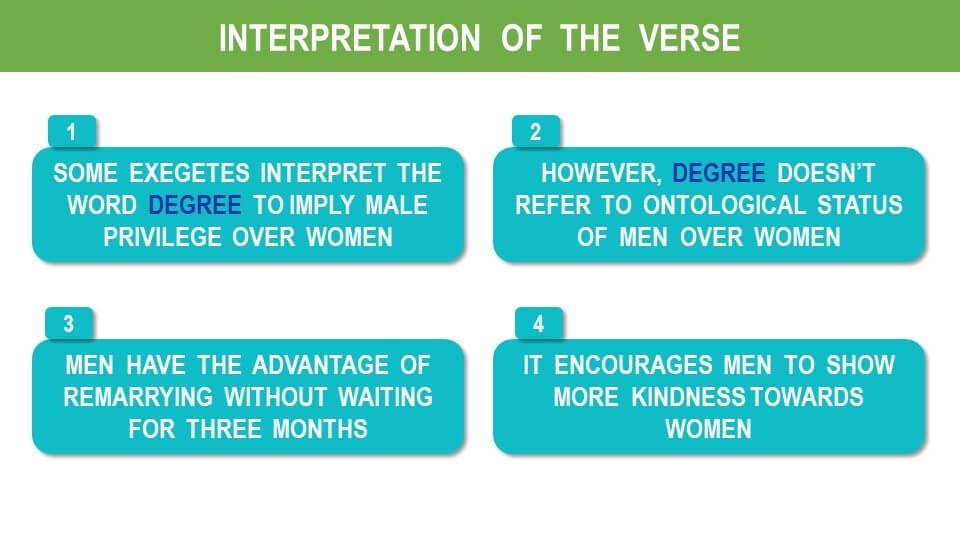
Egalitarian, not Patriarchal
The Quran does not define human beings or social reality in terms of binaries, such as, female-male, nature-culture, politics-family.
It does not advocate social or sexual division of labour nor does it annihilate the differences between men and women.
The teachings of the Quran are egalitarian, not patriarchal. It allow us to theorize equality, sameness, similarity, or equivalence between men and women in certain context.
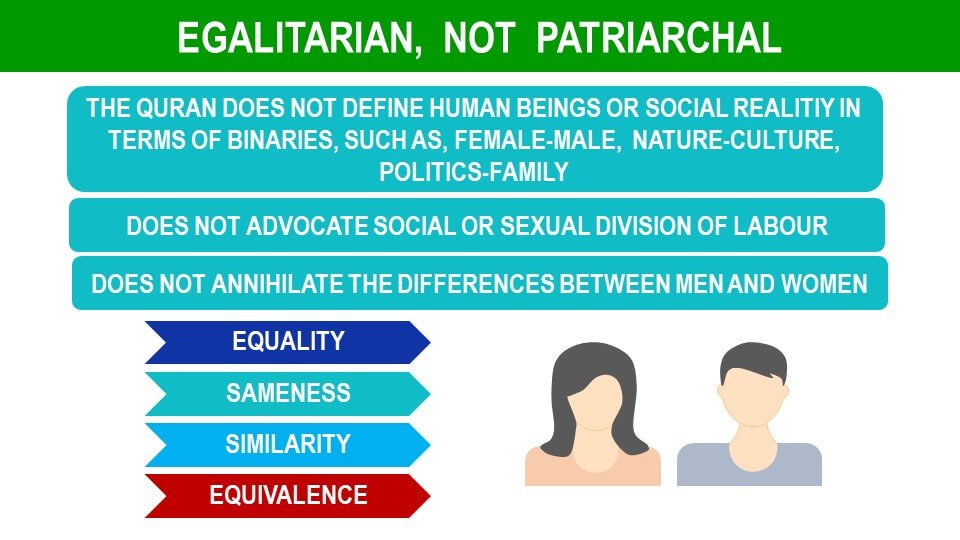
Summary
Asma Barlas points out that gender hierarchy and roles are inherent in most societies. However, she sets out on a task to reclaim gender equality based on the teachings of the Quran.
She explores the subject by examining the nature of God in Islam, followed by the struggle of prophet Abraham against his father who believed in polytheism.
Based on nature of God, she infers that men are not intermediary between women and God, and exegesis that reads oppression should be rejected. She refers to a verse in Quran to show that it explicitly states that faith takes priority over family relationships.
Asma examines two of the verses in the Quran that are widely misread creating gender hierarchy and inequality.
She also looks at the nature and origin of human creation in the Quran and refers to a verse where men and women are appointed each other’s protectors.
She concludes that the Quran does not define human beings or social reality as binaries nor does it advocate social or sexual division of labour.
Neither does it annihilate the differences between men and women.
She illustrates the egalitarian teachings in the Quran.
